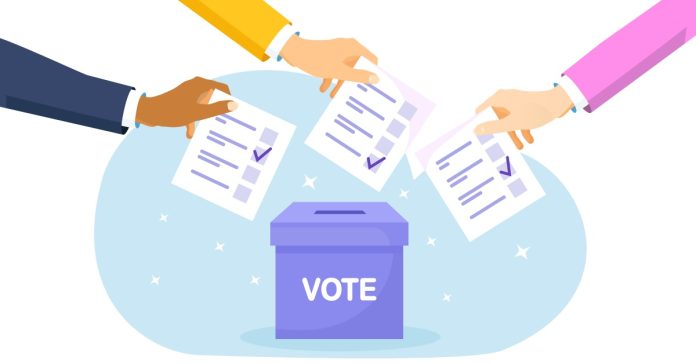- Not for nothing, the election in the Indian context is monikered as the dance of democracy. Any election evokes so much fun, gaiety, vibrancy, and festive mood that the same needs to be experienced to completely soak in the atmosphere. Of course, democracy is a form of governance that has people’s interests as its primary responsibility. Yes, democracy is for the people, by the people, and for the people. Thus, every citizen is entrusted with the responsibility to exercise franchise in not only choosing representatives through elections but also allowing the welfare and social schemes of the government, meant for them, executed on expected lines. Mind you, other forms of governance viz. authoritarian, autocratic, and the ilk doesn’t offer this freedom.

PC: BusinessToday.In
- No wonder, all stakeholders right from the government and election commission onwards exhort eligible citizens to exercise their franchise by voting in large numbers. Disappointingly, what is witnessed in the country is the continued apathy of the urban voters who for reasons known to them perpetually fail to turn out to exercise this right to choose their representatives. We have seen this phenomenon playing out time and again. The recently concluded elections to the states of Gujarat and Himachal Pradesh yet again highlight this apathy. Even the Delhi Municipal Council elections witnessed below-par voter turnout. The exasperated election commission didn’t mince words while mentioning that urban voter apathy continues unabated from Shimla to Surat.
- In Shimla, the turnout was more than 10 percentage points lower than Himachal’s state average of 75.6%. The trend held sway in the first phase of Gujarat polls where the urban turnout was lower than the surrounding rural areas. The urban turnout in the first phase in Gujarat was also lower than the same in 2017. The second phase of polling is no better either. The better healed usually stay off and the trend is not new. In the first three decades of elections, the relative participation of urban voters was greater. The gap between urban and rural turnout has widened since the 1980s. Urban apathy isn’t irrelevant as urban India contributes to 60% of GDP and a very high proportion of taxes. Yes, India’s urban governance is relevant to voter turnout.

PC: Pushpita Dey
- Political scientists have used surveys and election data to study the plausible reasons for the lower turnout in urban areas. The common thread running through some of the studies is that rural turnout is positively influenced by a more pronounced emphasis on group mobilization and a greater need for the intervention of politicians to compensate for state failure. Large slum clusters usually see greater voter turnout. Unlike the urban middle class, poorer urban Indians still need politicians to improve some services. Prima facie the disconnect between the city middle class and elections must be addressed by the political class. Apart from this, why not make voting compulsory? Did someone mention this goes against the tenet of rights? I heard it.






